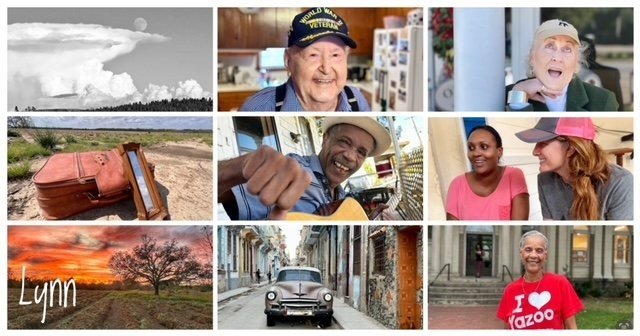Facing Bigger Problems
I see the problems but I don't know the answers...I could write a story every day that starts out like this.
Today I watched volunteers with One Meal feed the hungry. One Meal started nine years ago after a chili cook-off when then 13-year-old Marina McKinley watched homeless people ask for the leftover chili. The next Sunday she got her family to make sandwiches to pass out in the park and they never stopped. Her dad, Mike, still does the cooking with the help of some local churches and they serve 150 meals at 4 p.m. on St. Louis Street every Sunday. Mike says they serve 7600 meals a year, 6500 are cooked in his kitchen.
"We help people in need, but we also help those who need to help the people in need," says Mike. "People want to help, but don't know how. We give them an easy way to do it."
After the line ended on St. Louis Street, we delivered box lunches to "The Block," a residential hall that looks like a small, poorly built, concrete college dorm. The word slumlord is used to describe “The Block." People stood on the steps waiting for the meals as we pulled up. The man in the front room talked loud and excitedly but calmed down when he asked us to pray for him. Another made sure we took a plate to the woman in a room in the back who could not get out of her bed. The beds are barely blankets and mattresses on the floor in the small rooms. They say there are only two restrooms in the building and a tossed-out toilet is next to a television on the side of the road. As a woman carries her plate into her room, the sign on her door says, "This is not a restroom. Don't come in and us it like that." Residents pay $90 a week to live here.
After we left, I told a friend about One Meal and The Block. She said my stories are too positive. They need to show more of the problems like the slumlords and question the ways we feed and care for the homeless and push to find better ways to solve these problems.
She also brought up Henry Hall, an 86-year-old artist I have been interviewing and taking other artists to meet. His house and yard are like a candy store full of surprises in every corner and it is all a glimpse inside his creative mind. There are the robes he made and loves to wear and the dance moves and language of his character, Andrew Bartimeo Custaleno, that I can't understand but is beautiful to hear.
"You are caught up in Henry as an artist and a character," says my friend who also knows him. "Are you going to also mention that he is a hoarder and an alcoholic or that his house is unsafe?"
She is right, Henry's house is full of creations covered in tinsel and lights and the things he has salvaged from trash cans or along the side of the road. There is a small path from the front door through the kitchen to his bedroom. His brain doesn't shut off at night and he says going to bed is more like "kissing the pillow" than sleeping. There is a narrow space for resting on the edge of a bed covered with art and supplies so he can work at any time. His "go-go juice," Aristocrat Gin, is always close by.
Henry loves the attention from our visits and we love him. He dreams of having an art exhibit where people will buy some of his work or his hats and we are trying to make that happen. Watching Henry in his glory will be the easy, feel-good for all of us. But what is best for Henry? Is there something more we should be doing for him?
I know I am a bit of a Mary Poppins, but my friend is right. There are hard issues in Mobile that are going to take more than a spoon full of sugar. What are the answers and what can we do about them?
Maybe we need a few more 13-year-olds like Marina who see problems and can find a way fix them.






